
The Max Planck Institute for Biophysical Chemistry, also known as the Karl-Friedrich Bonhoeffer Institute, was a research institute of the Max Planck Society, located in Göttingen, Germany. On January 1, 2022, the institute merged with the Max Planck Institute for Experimental Medicine in Göttingen to form the Max Planck Institute for Multidisciplinary Sciences.
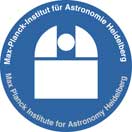
The Max-Planck-Institut für Astronomie is a research institute of the Max Planck Society (MPG). It is located in Heidelberg, Baden-Württemberg, Germany near the top of the Königstuhl, adjacent to the historic Landessternwarte Heidelberg-Königstuhl astronomical observatory. The institute primarily conducts basic research in the natural sciences in the field of astronomy.

The Max Planck Institute for Chemistry is a non-university research institute under the auspices of the Max Planck Society in Mainz, Germany. It was created as the Kaiser Wilhelm Institute for Chemistry in 1911 in Berlin.

The Max Planck Institute of Geoanthropology performs fundamental research into archaeological science. The institute is one of more than 80 research institutes of the Max Planck Society and is located in Jena, Germany.
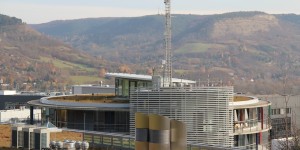
The Max Planck Institute for Biogeochemistry is located in Jena, Germany. It was created in 1997, and moved into new buildings 2002. It is one of 86 institutes in the Max Planck Society.
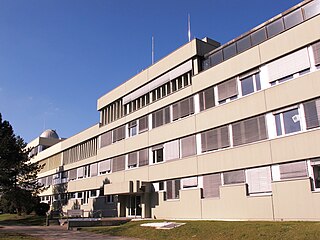
The Max Planck Institute for Radio Astronomy (MPIfRA) (German: Max-Planck-Institut für Radioastronomie) is located in Bonn, Germany. It is one of 80 institutes in the Max Planck Society (German: Max-Planck-Gesellschaft). 50°43′47.6″N7°4′9.2″E
The Max Planck Institute for Plant Breeding Research was founded in Müncheberg, Germany in 1928 as part of the Kaiser-Wilhelm-Gesellschaft. The founding director, Erwin Baur, initiated breeding programmes with fruits and berries, and basic research on Antirrhinum majus and the domestication of lupins. After the Second World War, the institute moved west to Voldagsen, and was relocated to new buildings on the present site in Cologne in 1955.
The Max Planck Institute of Colloids and Interfaces is located in Potsdam-Golm Science Park in Golm, Potsdam, Germany. It was founded in 1990 as a successor of the Institute for Physical Chemistry and for Organic Chemistry, both in Berlin-Adlershof, and for Polymer Chemistry in Teltow. In 1999, it transferred to newly constructed extension facilities in Golm. It is one of 80 institutes in the Max Planck Society (Max-Planck-Gesellschaft).

The Max Planck Institute for Terrestrial Microbiology is a research institute for terrestrial microbiology in Marburg, Germany. It was founded in 1991 by Rudolf K. Thauer and is one of 80 institutes in the Max Planck Society (Max-Planck-Gesellschaft). Its sister institute is the Max Planck Institute for Marine Microbiology, which was founded a year later in 1992 in Bremen.
The Max Planck Institute of Neurobiology was a research institute of the Max Planck Society located in Martinsried, a suburb of Munich in Germany. It existed between 1984 and 2022 and merged with the Max Planck Institute for Ornithology to the new, joint Max Planck Institute for Biological Intelligence in 2023.
The Max Planck Institute for Marine Microbiology is located in Bremen, Germany. It was founded in 1992, almost a year after the foundation of its sister institute, the Max Planck Institute for Terrestrial Microbiology at Marburg. In 1996, the institute moved into new buildings at the campus of the University of Bremen. It is one of 80 institutes in the Max Planck Society.

The Max Planck Institute of Immunobiology and Epigenetics in Freiburg, Germany is an interdisciplinary research institute that conducts basic research in modern immunobiology, developmental biology and epigenetics. It was founded in 1961 as the Max Planck Institute of Immunobiology and is one of 86 institutions of the Max Planck Society. Originally named the Max Planck Institute of Immunobiology, it was renamed to its current name in 2010 as it widened its research thrusts to the study of epigenetics.
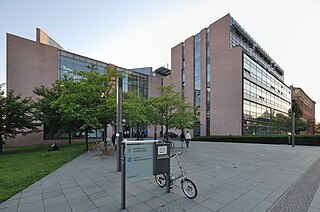
The Max Planck Institute for Infection Biology (MPIIB) is a non-university research institute of the Max Planck Society located in the heart of Berlin in Berlin-Mitte. It was founded in 1993. Arturo Zychlinsky is currently the Managing Director. The MPIIB is divided into nine research groups, two partner groups and two Emeritus Groups of the founding director Stefan H. E. Kaufmann and the director emeritus Thomas F. Meyer. The department "Regulation in Infection Biology" headed by 2020 Nobel laureate Emmanuelle Charpentier was hived off as an independent research center in May 2018. The Max Planck Unit for the Science of Pathogens is now administratively independent of the Max Planck Institute for Infection Biology. In October 2019, Igor Iatsenko and Matthieu Domenech de Cellès established their research groups at the institute, Mark Cronan started his position as research group leader in March 2020. Silvia Portugal joined the institute in June 2020 as Lise Meitner Group Leader. Two more research groups where added in 2020, Felix M. Key joined in September and Olivia Majer in October, completing the reorganization of the Max Planck Institute for Infection Biology. Simone Reber joined as Max Planck Fellow in 2023 and now heads the research group Quantitative Biology.
The Max Planck Institute of Molecular Plant Physiology is a German research institute for molecular plant physiology, based in the Golm district of Potsdam, Brandenburg. Founded on 1 January 1994, the MPIMP focuses on the study of the dynamics of plant metabolism and how that relates to the entire plant system. The institution is one of the 80 institutes in the Max Planck Society (Max-Planck-Gesellschaft).

Bill S. Hansson is a Swedish neuroethologist. From June 2014 until June 2020, he was vice president of the Max Planck Society.
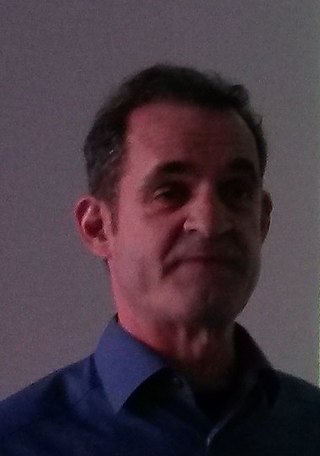
Jonathan Gershenzon is an American biochemist.
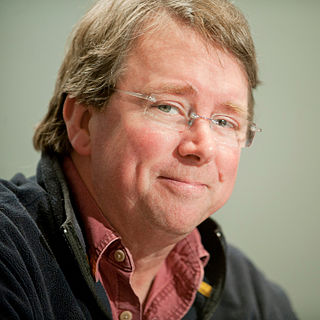
Ian Thomas Baldwin is an American ecologist.
The International Max Planck Research School for Organismal Biology founded in 2009, was a structured doctoral program of the former Max Planck Institute for Ornithology in Seewiesen (Pöcking) and the Department of Biology of the University of Konstanz. In October 2010, the first 30 doctoral students began their research, and until 2023, 105 have successfully graduated. The faculty consisted of over 35 leading scientists with a focus on behavioral science, ecology, evolutionary biology, physiology and neurobiology of the former Max Planck Institute for Ornithology and the Department of Biology at the Universität Konstanz. The goal of the IMPRS for Organismal Biology was to provide first-class training and education to doctoral students from around the world, in a stimulating, world-renown research environment. The school officially ended in 2023.
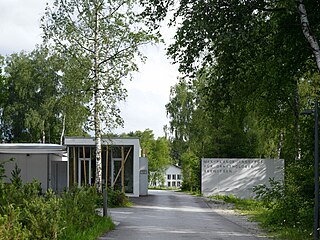
The Max Planck Institute for Ornithology was a non-university research institution under the sponsorship of the Max Planck Society. As of 1 January 2023, it merged with the Max Planck Institute for Neurobiology (MPIN) to form the new Max Planck Institute for Biological Intelligence (MPI-BI). The MPIO was located in Seewiesen, which belongs to the municipality of Pöcking in Upper Bavaria.
Martin Kaltenpoth is a German evolutionary ecologist.













